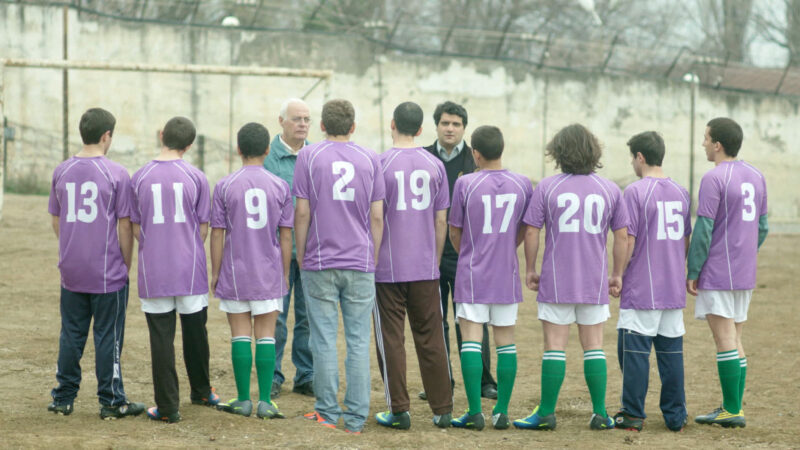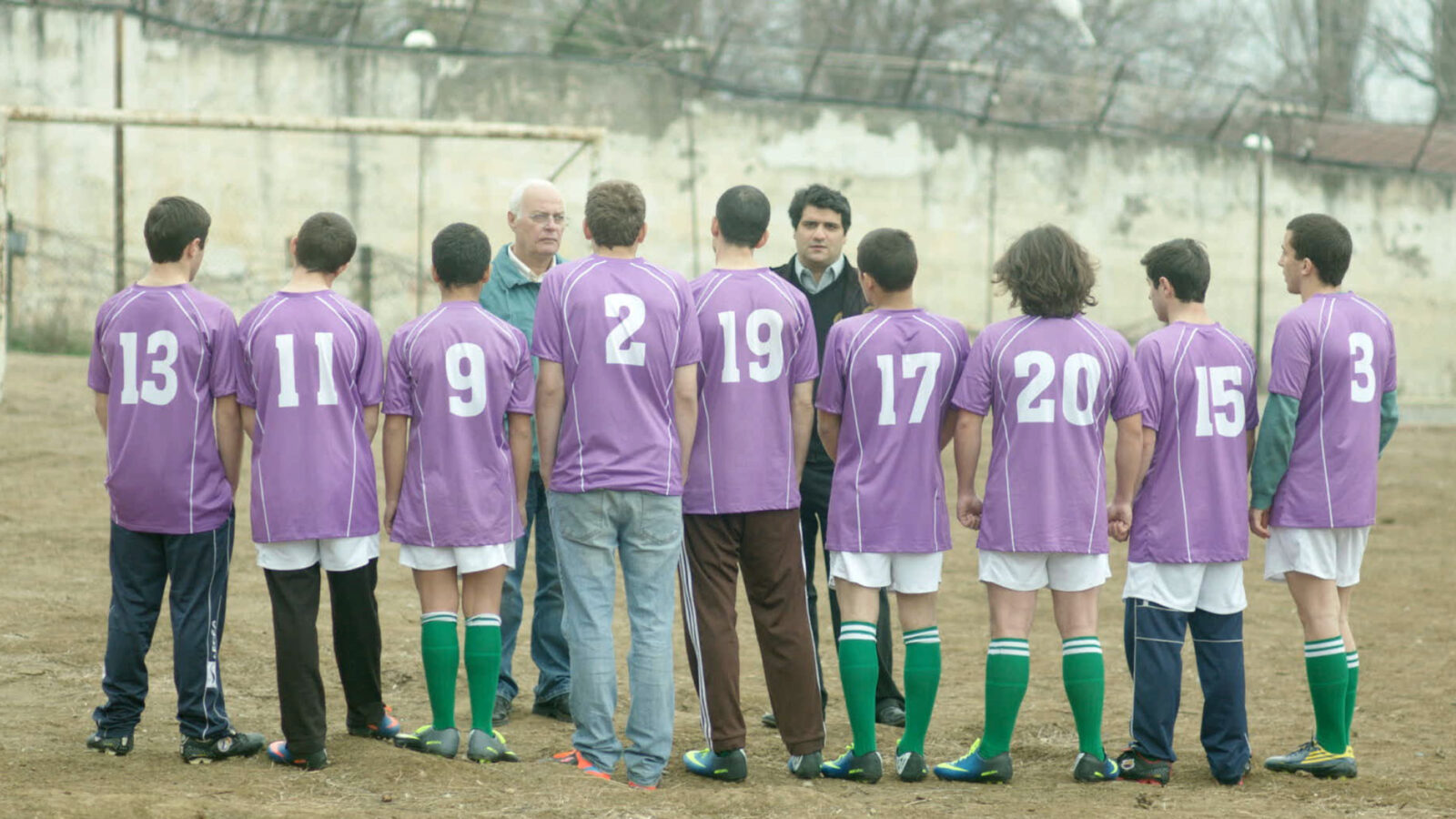

“You have to use negative numbers [...]. They exist, but at the same time they don’t. You use them when somebody owes you a debt.” In a juvenile detention facility in Tiflis in the early 2000s, everyone is burdened by some kind of debt, though not always for their own crimes. Take Nika for instance: he took the rap for his older brother and now keeps his fellow inmates in line on the inside. A telephone call from the outside promises a lucrative career as a gangster, if he can get his fellow convicts in position for a national prison riot. Alas, then the facility starts offering rugby practice, a genuine team spirit begins to grow among the incarcerated adolescents and the remote directives slowly fade into the background. The film’s plot is based on the experiences of two former professional rugby players who used sports to re-socialise young offenders. At the beginning of the new millennium, Georgia was caught in a serious economic crisis. Without any prospects for the future, many young adults ended up on the wrong path and landed in facilities like the one depicted in the film. With his debut feature, Uta Beria succeeds in creating a detailed depiction of the everyday prison life of his protagonists that also offers genre connoisseurs welcome variety.
- Screenplay: Uta Beria
- Cinematographer: Tato Kotetishvili
- Editor: Alexander Khuranov, Nodar Nozadze, Joel Jacovella
- Music: Thomas Rozes, Tete Noise
- Sound: Uta Beria, Olivier Leroy
- Cast: Sandro Kalandadze, Viktor Barbakadze, Tedo Bekhauri, Lexo Gugava, Sandro Abashidze
- Producer: David Isakadze, Kote Takaishvili
- Production Company: Magnet Films
- Co-Production Company: alief, 39 Films, Wide Management
- World Sales: Wide Management
“You have to use negative numbers [...]. They exist, but at the same time they don’t. You use them when somebody owes you a debt.” In a juvenile detention facility in Tiflis in the early 2000s, everyone is burdened by some kind of debt, though not always for their own crimes. Take Nika for instance: he took the rap for his older brother and now keeps his fellow inmates in line on the inside. A telephone call from the outside promises a lucrative career as a gangster, if he can get his fellow convicts in position for a national prison riot. Alas, then the facility starts offering rugby practice, a genuine team spirit begins to grow among the incarcerated adolescents and the remote directives slowly fade into the background. The film’s plot is based on the experiences of two former professional rugby players who used sports to re-socialise young offenders. At the beginning of the new millennium, Georgia was caught in a serious economic crisis. Without any prospects for the future, many young adults ended up on the wrong path and landed in facilities like the one depicted in the film. With his debut feature, Uta Beria succeeds in creating a detailed depiction of the everyday prison life of his protagonists that also offers genre connoisseurs welcome variety.
- Screenplay: Uta Beria
- Cinematographer: Tato Kotetishvili
- Editor: Alexander Khuranov, Nodar Nozadze, Joel Jacovella
- Music: Thomas Rozes, Tete Noise
- Sound: Uta Beria, Olivier Leroy
- Cast: Sandro Kalandadze, Viktor Barbakadze, Tedo Bekhauri, Lexo Gugava, Sandro Abashidze
- Producer: David Isakadze, Kote Takaishvili
- Production Company: Magnet Films
- Co-Production Company: alief, 39 Films, Wide Management
- World Sales: Wide Management
